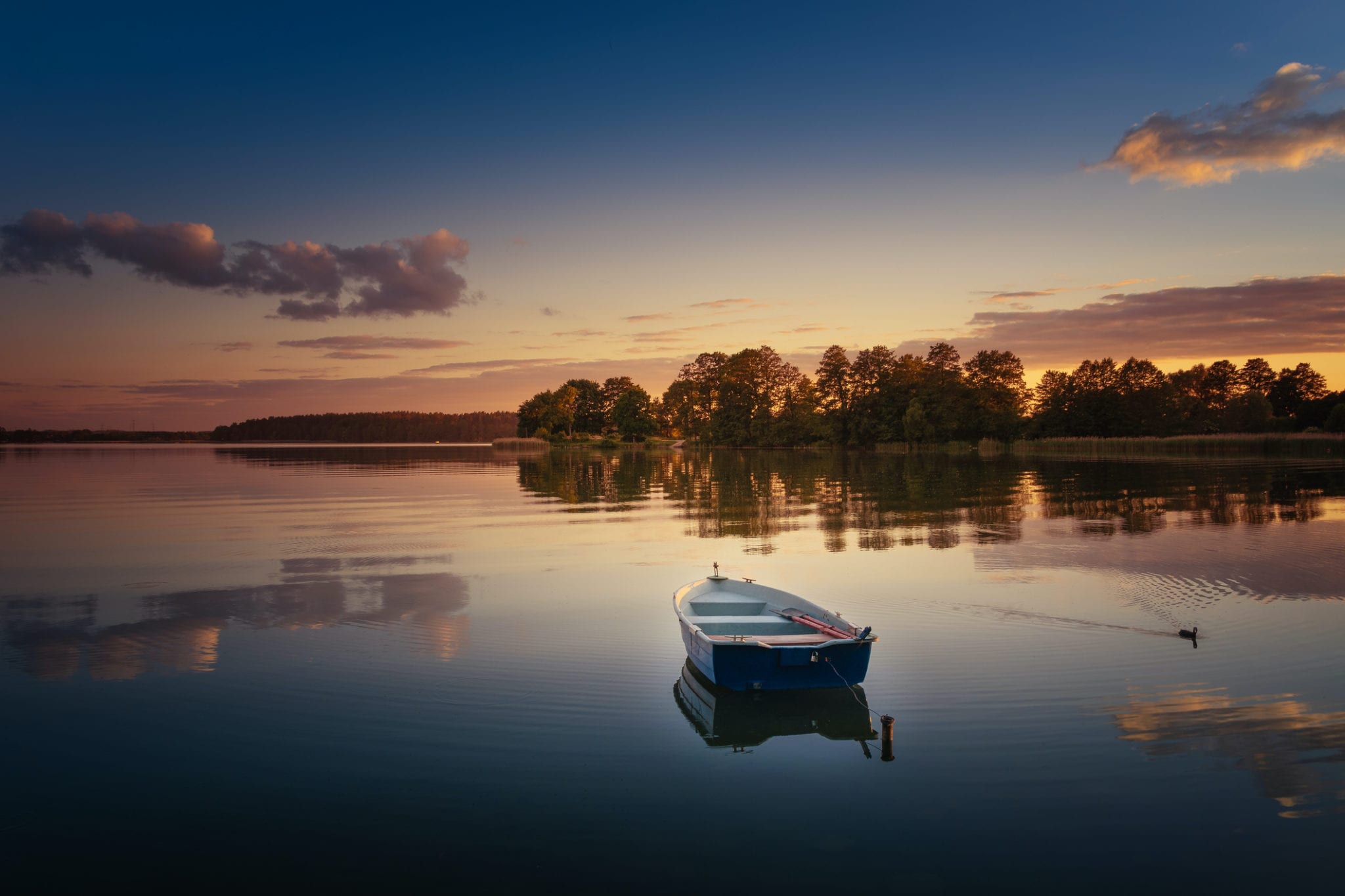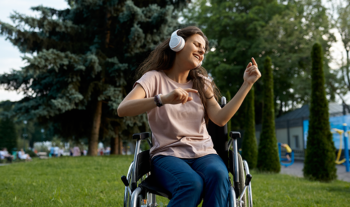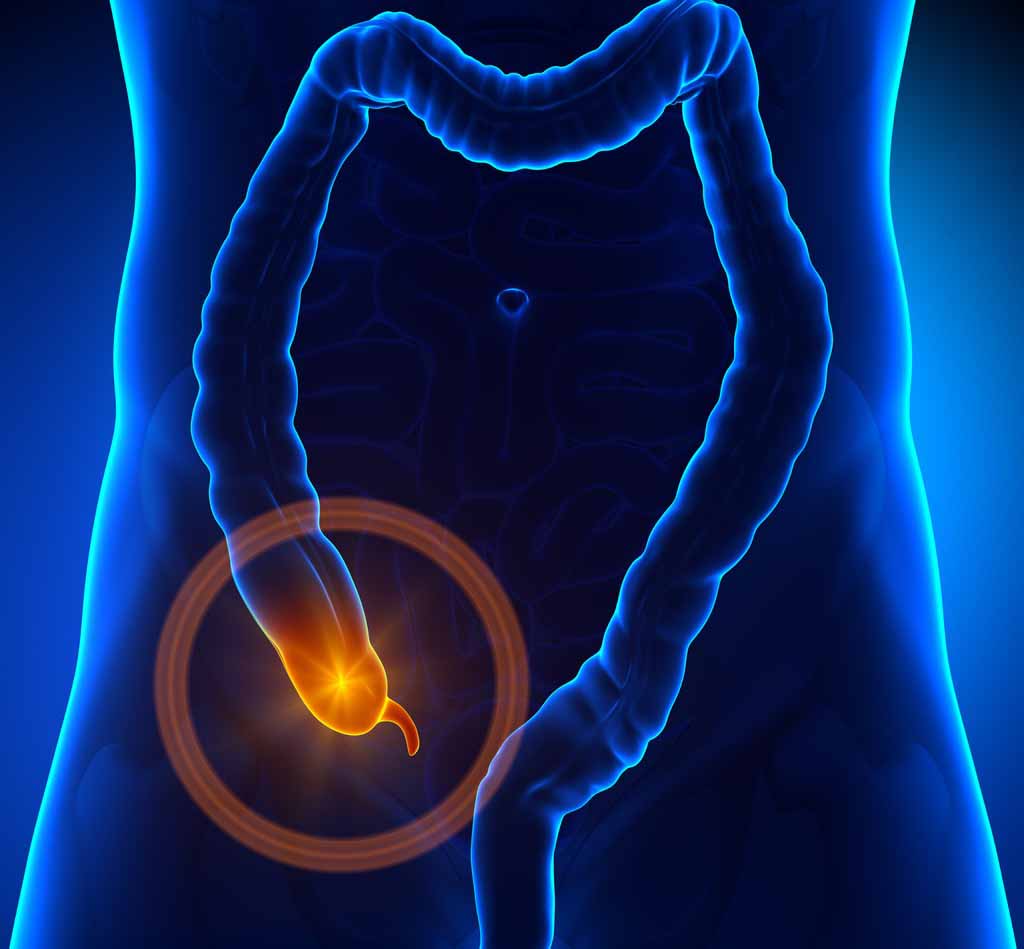We live in an old chaos of the sun,
Or old dependency of day and night,
Or island solitude, unsponsored, free,
Of that wide water, inescapable.
Deer walk upon our mountains, and the quail
Whistle about us their spontaneous cries;
Sweet berries ripen in the wilderness;
And, in the isolation of the sky,
At evening, casual flocks of pigeons make
Ambiguous undulations as they sink,
Downward to darkness, on extended wings.
Wallace Stevens, Sunday Morning1, Stanza viii
The Collected Poems, 1954
The first time I ever saw a dead person was in 1971. It was at the Thomas P. Kearney Funeral Home on North Main Street in Old Forge, Pennsylvania.2 I was attending the wake the evening before the funeral of my mother’s first cousin Alex. We called him Uncle Al.
He was the golden son of our large immigrant family who journeyed from the hill villages of Campania in southern Italy over a hundred years ago. From the seaside ports of Naples, they boarded passenger liners, tramp steamers, and sooty cargo ships fleeing poverty and famine.
They crossed the Mediterranean and the cold Atlantic to Ellis Island3 in New York harbor. From there they made their way to the anthracite coal seamed hills of eastern Pennsylvania with all of their possessions packed in battered trunks and suitcases. This was a destination far from the shadow of Vesuvius and the terraced hillsides of sunbaked stone and olive trees.
About Alex
Alex was the embodied exclamation point of untold generations of our old-country ancestors. He was the first to go to college, and then medical school. He became a doctor, rather than a laborer, stonemason, or coal miner.
He was the pride not only of his parents and his many aunts, uncles, and cousins but of the entire town that collectively and proudly claimed him as their own. In a cruel twist of fate, Alex died suddenly of a heart attack in his early forties in a family filled with old people.
It is a tradition among Italian-American Catholics to have a wake, an open casket viewing prior to the funeral. This is where I saw him on a bier surrounded by massive bouquets of white flowers.
Here was his final bed. His head rested on a satin pillow, dressed in his sharpest suit, the one he wore to Sunday mass and to the hospital to round on his many loyal patients.
At this time of my life, I was a small, quiet, and serious boy. I was made more so by the untimely death of my own father three years earlier from a sudden ruptured cerebral aneurysm4 at the tragically premature age of thirty-four.
My father was a young doctor as well, the eldest son and the pride of his own West Virginia family. So, this ritual, my second cousin’s viewing, promised me something already familiar yet at the same time forbidding and unworldly.
The last time I saw my father
I never went to my father’s funeral. The last time I ever saw him, he was being wheeled down our upstairs hallway on a white ambulance stretcher. He was semi-conscious, with his head lolling from side to side like a parody of a drunkard in a cartoon.
I had woken up early that sunny January morning in 1968. I remember there was frost on the windows looking out over the large circular driveway of the old Long Island estate in Roslyn Harbor5 where my family lived in a red brick carriage house with black shutters.
My mother was downstairs making breakfast in the kitchen. When she was done setting the table, she told me to go wake up my father. He had returned from a late-night call shift at the hospital where he worked as an anesthesiologist, a Lieutenant Commander in the Navy.
I remember taking the stairs two at a time and then heading down the hall, my fingers tracing the wall past my sister’s bedroom, then my brother’s and mine. I went past the bathroom that was still damp and warm from a shower my mother had taken that morning.
Slowly, I reached out for the brass doorknob of my parent’s room at the end of the hall and turned it, only to find the door locked. This caught me by surprise. Their door was never locked. I twisted it right and left, knocked, and knocked again. Then, I rattled the door, shouting for my dad to wake up. He didn’t answer.
My memory is unreliable after that and recalling these events feels more like a story told to me by someone else. I do remember my mom thinking at first it was funny, that he was playing a joke on us.
She then became being annoyed, and angrily came upstairs and began slapping, then pounding on a door that would not open. Her anger was replaced by panic. She ran back downstairs and called the neighbors, Mr. and Mrs. Best, who quickly came over.
They called the firemen who arrived in their red engine, flashing lights, and a wailing siren. They in turn called the ambulance after breaking through the door and finding him in bed, unresponsive. I can still hear my mom screaming his name, pleading with him to wake up.
“Your father is gone”
For two weeks he was in a hospital6 in Glen Cove where I was not allowed to go. My relatives from Old Forge and Morgantown came over the next few days and clustered in the den and living room of our house.
They reminded me of the groups of dark shorebirds down at the beach at Mott Cove, a short walk down the hill. Their heads bobbed together, and they moved in groups speaking in hushed whispers and occasional cries. It seemed to me that they could not look directly at me without giving away a secret I couldn’t even begin to guess.
I do remember very clearly the morning my mother called me to her room, and stiffly and awkwardly told me he had died. She tried her best to maintain her composure and lost that battle. Her chin tilted back, her voice stuttered and halted. “Your father is gone.” The final, awful word “gone” broke into a high-pitched dissonant cry. Gone where? I was so sad and confused. I didn’t know, and I didn’t want to find out.
So, I refused to go to the funeral. Instead, I stubbornly hid under the front entry hall table as small clutches of women in black dresses, and men in dark suits and skinny ties passed me again and again. They knelt down and tried to coax me out but nothing on earth would move me.
The neatly creased triangular folded American flag that draped his casket sat untouched on that same table for weeks afterward. It was finally packed away in a cardboard box with the rest of his possessions and disappeared with most everything else that belonged to him in the years and many moves that followed.
Related Content:
My Grandparents’ Agonizing Deaths Taught Me to Be a Better Doctor
A Mother’s Howl: A Medical Student’s Lesson On Giving Bad News
Not So Intelligent Design: The Bible, Darwin and the Trouble-making Appendix
Uncle Al’s family
It was with a mixture of dread and curiosity that I approached the white satin-lined casket of Uncle Alex surrounded with flowers. It exuded a cloying sickly-sweet smell mixed with some other musty odor that I could not place.
“Our Al”, is what my Grandmother and her four sisters called him. He was the eldest son of my Great Aunt Rose, the youngest daughter of the five Fabbo sisters. Her husband, my Great Uncle Tony was a painter who whistled Italian melodies while he worked putty into cracks in wood and sang in a warbling tenor as he painted.
Uncle Tony was once an entertainer, a guitar player who cherished his battered Martin guitar and serenaded lovers in dark restaurants and speakeasies. He often boasted that he once crooned a ballad called The Roses of Picardy7 for Al Capone.
Faded framed nightclub posters of him on the walls of his house attested to his once slick Valentino good looks. Now his perpetually smiling face was gone, replaced with a terrible visage of the utter and abject grief of a man who had outlived his only son.
The dead body was unreal to me
The dead body was unreal to me, more waxworks than flesh. His neatly manicured clay-like fingers seemed firmly squared and unnaturally creased rather than soft and rounded. They were entangled with black rosary beads. A silver cross with a small figure of a dying Christ stared back at me.
I carefully watched his chest for what seemed like an eternity, but it did not move. I held my breath to see if I could keep mine as still, but failed, and exhaled loudly. His face was impassive, his thin eyelids were closed, somehow him and not him, not the Uncle Alex that I knew, but something else.
I must have stopped at the casket mesmerized at the sight of his body for a long time, because I remember stirring as if from a dream, suddenly aware of the unyielding presence and pressure of the living, bustling, powdered flesh behind me. They were pushing me forward towards the black receiving line of his immediate family who was waiting to receive condolences from the perfumed, and furred mourners stretching out into the hall, and beyond.
My precious Grandma
I attended many funerals after that, most in that same small town of Old Forge, where the old world of my family slowly disappeared. Next to leave was my Grandfather, then my Great Aunts Caroline and Sylvia, and Uncle Tony. Next were cousins that I barely knew, and old Italian men named Pecker, and the Duck, and Razor.
♦♦Love Our Content?♦♦
Sign up for our Newsletter Here
These were men who played pinochle, went to prize-fights at the Scranton CYC, stood on corners and smoked cigars. They were men who faded, grew old, and died…
And then it was my precious Grandma’s turn – the woman who helped raise me after my father died. She cooked me “pasta fazool” and rolled out macaroni and Christmas cookies on her kitchen table and called shrimp “shrimps.”
She let me pat her stiff hair-sprayed head while she laughed and laughed, always “worried” about me. Grandma hugged me hard at comings and goings. She loved me fiercely and unconditionally.
And then I moved on. I came to California, and a different world, far from the low rolling hills, and the dusty coal town of my mother’s family.
My next dead body
Years later I saw my next dead body. In truth, it was two dead bodies, but one I watched die. I didn’t exactly know it then, but the experience was the catalyst that caused me to pause and re-examine and re-direct my life.
For four summers I worked at the Stanford Sierra Camp8 at Fallen Leaf Lake, California. In my first summer there I was a counselor. I shepherded the three- and four-year-old “munchkins”, as their parents hiked, relaxed, and sipped wine on the deck of the old lodge. They reminisced about their carefree undergraduate days that I was still happily living.
My sense of humor was edgy, and definitely at times inappropriate. For the Fourth of July parade, I dressed up the children as Western settlers. They dutifully marched behind a covered wagon I had built out of a wooden cart, some PVC pipe, and bedsheets. It had the words “Daring Pioneers” written on the side of the wagon facing the parents. Facing the staff on the other side of the camp road were the words,“ Donner Party at Snack-Time. The hands of the munchkins were clutching and munching on chicken drumsticks.
As my fourth summer at camp after my college graduation turned to fall, I remained there working the conference season. I had no long-term plans and was, to be honest, somewhat lost. I had no idea what I wanted to be or even where I wanted to go next.
–A boat with two fishermen capsized
Fall became colder, and an early October snowfall dusted Angora ridge and the road around the lake. I was in the front office when a call came from a lakeside homeowner. Two fishermen had capsized and were struggling in the frigid water at Craven’s dock opposite our camp. My friend Rick and I grabbed the first aid kit and keys to one of the Country Squire station wagons and then slipped and skidded our way around Fallen Leaf Lake road.
We arrived to find the two heavy late middle-aged men chest-deep in the freezing water off the end of the dock. Their aluminum rowboat was overturned, their cooler and tackle-box bobbed beside them.
One man was frighteningly still, his face an ugly purple, his yellow-rimmed eyes open and fixed on some distant horizon. His arms extended limply to either side, a literal dead man’s float.
His companion heaved great gasps next to him, oblivious to our presence. We pulled both men from the water with considerable effort and laid them on the dock. Like his friend, the second man’s face soon turned mottled and dusky. His breathing became shallow and rapid.
—This was a turning point
Both Rick and I had taken CPR, and fumbled ahead, our cold numbed hands shaking. We checked his pulse. It was faint and thready, without the familiar rhythm of a normal heartbeat. As Rick began chest compressions, I leaned down to administer two rescue breaths into his gaping mouth, and then he retched.
Copious pea-green vomit snaked out of his throat and mouth with every thrust on his chest. I felt sick and gagged on my own rising bile. We continued CPR until the paramedics arrived and told us to stop. So, we stepped back, exhausted, allowing the reality and finality of the situation to sink in. Our prodigious efforts were in vain.
I remember clearly thinking to myself that this was a turning point. I wanted to know more, to be more competent and effective – to help. And for the first time in my life, I became fully aware of what I needed to do, and who I wanted to become.
Sometimes death is inevitable, sometimes an epic failure
I have seen many dead bodies since that snowy day at the lake. I practically lived with one during my first year in medical school in the anatomy lab. We named our cadaver Ernest, and would say we were always working in “dead Ernest.”
I am certain we did not invent that joke, but we always ridiculously enjoyed its repetition. Despite our wary familiarity with death, and our brave but often futile attempts to ward it off, physicians never entirely get used to it. Death remains an intruder, an unwelcome guest. At times, in some patients, death is inevitable. In others, it is an epic failure.
What has stayed with me most throughout my life as a doctor, since that fateful day on the lake and the years of study and training that followed, is an awareness born from actually seeing someone pass from the world we know into one we don’t.
In this fleeting moment, it’s hard not to believe in a soul. It is impossible to describe this ineffable feeling, but I remember a fragment of a poem I read in college whose authorship escapes me. In it, the poet describes the last moments of her dying father. She describes his mouth as “the size of a silver dollar with the dollar gone.” For me, that metaphor of emptiness and lost value says so much more than I will ever know.
***
References
- Wallace Stevens. Sunday Morning. The Poetry Foundation. httpss://www.poetryfoundation.org/poetrymagazine/poems/13261/sunday-morning
-
Old Forge, Lackawanna County, Pennsylvania. Wikipedia httpss://en.wikipedia.org/wiki/Old_Forge,_Lackawanna_County,_Pennsylvania
- The Statue of Liberty—Ellis Island Foundation, Inc. httpss://www.statueofliberty.org/
-
Intracranial aneurysm, Wikipedia httpss://en.wikipedia.org/wiki/Intracranial_aneurysm
-
Roslyn Harbor, New York, Wikipedia httpss://en.wikipedia.org/wiki/Roslyn_Harbor,_New_York
- Glen Cove Hospital, NY, httpss://glencove.northwell.edu/
- Al Capone’s Favorite Song, A Smile and a Gun. January 22, 2015 httpss://smileandgun.wordpress.com/2015/01/22/al-capones-favorite-song/
-
Stanford in the Sierra, Stanford Alumni. httpss://sierracamp.alumni.stanford.edu/
Jeffrey Swisher, M.D.
Jeffrey L. Swisher, M.D.
I am a second-generation anesthesiologist and storyteller. I was raised in Roslyn Harbor, Long Island, and then Princeton, New Jersey. My decision to pursue medicine as a career followed an undergraduate education at Stanford University where I majored in International Relations. Realizing life in the foreign service was not my true dream, I had an epiphany on the shores of Fallen Leaf Lake in the Sierras on a frigid early spring morning. It involved two drowned fishermen and an hour of attempted CPR. I decided then and there that I wanted to become a physician in order to help people in distress.
So I enrolled at the University of California, Santa Cruz where I completed a second bachelor’s degree in Biology. Then I returned to Stanford University, to the School of Medicine, where I was awarded my medical degree in 1989. While at Stanford, I received awards and grants to do research in the Mexican State of Chiapas, working with indigenous Maya in the highlands.
I completed my internship in Internal Medicine and my residency in Anesthesiology at the Virginia Mason Medical Center in Seattle, Washington. And lived for a while on a houseboat on Lake Union where I proposed to my wife, Dana. Later we lived in a house in Madrona above Lake Washington with two black labs (Harriet and Amos) and a new son, Henry.
Eventually, we moved to San Francisco, where I completed a fellowship in pain research at the University of California, San Francisco. I joined the faculty there as an Assistant Professor of Anesthesiology. I worked at Moffit-Long and San Francisco General Hospital for the next seven years pursuing my interests in clinical teaching, the history of anesthesia, local and regional anesthesia, and pain research.
My family grew to include another son, Peter, and a daughter Kate. We moved to a big old house in the redwoods of Larkspur, California just north of the Golden Gate Bridge in Marin County. In 1999. I joined an established but rapidly growing private practice anesthesia group at California Pacific Medical Center in San Francisco where I have been the Chairman of the Department of Anesthesiology for the past eight years.
I am now an empty nester. Our grown children have emigrated across the globe from Sydney, Australia to Washington, D.C. And now, my second-grade teacher wife of thirty years, Dana, along with a stately old English Labrador, Coal, and a two-year-old rescue Boxer/Lab/Chihuahua, Jasper, live amidst our garden, a small creek and a treehouse turned into a writer’s retreat.
My experiences have been shaped by being a descendant of Italian immigrants on my mother’s side and West Virginians on my father’s side. The latter have been in America since 1720.
I come from a family of physicians, teachers, and writers. My sister, Kara Swisher, is a noted technology journalist, host of the award-winning podcasts Pivot, and Sway, and an opinion columnist for the New York Times. My daughter Kate is a singer/songwriter, poet, and author of lyrical essays.
Like my sister and my daughter, I try to write stories based on true experiences that balance a deeply personal narrative with factual information. I welcome my readers into the complex, changing, and often heart-wrenching yet intensely rewarding world of medicine.









Comment will held for moderation